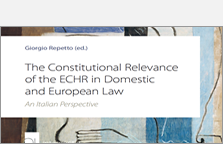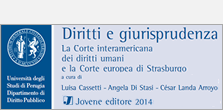TOZZI C. – La tutela dei “detenuti vulnerabili” arriva da Strasburgo
Autore dell’articolo/Author
Claudia Tozzi
Abstract
Con la sentenza in commento, la Corte europea dei diritti dell’uomo conferma l’ampia latitudine degli obblighi positivi di tutela preventiva discendenti dall’art. 2 Cedu, ribadendo l’onere, che grava sugli Stati, di proteggere la vita dei più deboli, ivi inclusi i detenuti (detenuti “vulnerabili”). In particolare, la decisione riguarda i profili di responsabilità dell’amministrazione carceraria e, dunque, dello Stato italiano per il suicidio del figlio dei ricorrenti, avvenuto nel 2001 mentre lo stesso si trovava ristretto nell’istituto di pena di Messina. Sebbene già nel 1995 gli fosse stato diagnosticato un complesso di disturbi della personalità definito “dramatic cluster”, non era stata riconosciuta all’interessato un’incompatibilità con il regime carcerario, tanto che il detenuto aveva trascorso alcuni periodi all’interno dell’istituto di Augusta e altri in un ospedale psichiatrico giudiziario. In particolare, nel 1999 era stato sottoposto a osservazione psichiatrica presso l’OPG di Barcellona Pozzo di Gotto, per poi tornare nell’istituto di pena. Nel 2000 le sue condizioni psichiche si erano aggravate, come dimostrato dai ripetuti atti di autolesionismo e da alcuni tentativi di suicidio che portarono nuovamente al suo ricovero presso l’OPG. Qualche tempo dopo, però, per poter partecipare al processo che si stava svolgendo a suo carico, fu tradotto nell’istituto penitenziario di Messina e lì continuò a perpetrare atti di autolesionismo e a non seguire le prescrizioni farmacologiche.[…]
With the judgment under review, the European Court of Human Rights returns to the issue of States’ obligations to protect the lives of “vulnerable” individuals. In particular, the Court goes so far as to condemn Italy for violating Article 2 ECHR from a substantive standpoint by failing to do everything possible to prevent the suicide of a detainee. The purpose of the paper is to acknowledge the jurisprudential approaches on this issue and the related actions – admittedly, of little consequence – of the national legislature..[…]













